 Shocking moments when PLA's weapons open fire
Shocking moments when PLA's weapons open fire Famous Lanzhou beef noodles
Famous Lanzhou beef noodles Armed Police hold anti-terrorism drill in SE China's Xiamen
Armed Police hold anti-terrorism drill in SE China's Xiamen Harbin Int'l Ice and Snow Festival opens
Harbin Int'l Ice and Snow Festival opens 'Jin' named the word of the year by cross-strait netizens
'Jin' named the word of the year by cross-strait netizens Chinese scientific expedition goes to build new Antarctica station
Chinese scientific expedition goes to build new Antarctica station
 Chinese naval escort fleet conducts replenishment in Indian Ocean
Chinese naval escort fleet conducts replenishment in Indian Ocean 17th joint patrol of Mekong River to start
17th joint patrol of Mekong River to start China's moon rover, lander photograph each other
China's moon rover, lander photograph each otherThe U.S. is in a position to criticize the rise of right-wing Japanese groups and apply pressure to them
Japanese Prime Minister Shinzo Abe's recent visit to the Yasukuni Shrine, which honors Japan's 14 notorious World War II class-A war criminals, has sparked widespread opposition around the world. International organizations including the United Nations and the European Union have denounced Abe’s move in various ways.
The United States also made a quick response, expressing its regret at Abe’s visit to the shrine. With the advance of economic globalization, the world will see increasing diversification, but the U.S. remains a super power. It is in a position to criticize the rise of right-wing Japanese groups and apply pressure to them.
If the U.S. is willing to assume this responsibility, which will be conducive to the stability of East Asia, then it will win respect from the international community. The consequences will be of great significance to the interests of justice, as well as helping to ensure Japan’s peaceful future development.
During World War II, the U.S. first chose to play it safe and adopted a policy of isolationism, and ultimately the country became a victim of its own policy. When the U.S. counter-attacked Nazi Germany and militarist Japan, and provided a public contribution to international security, both the U.S. and the rest of the world emerged as winners.
The U.S. is confronted by multiple considerations in its quest to safeguard its fundamental interests and to balance the interests of realpolitik. After World War II, the U.S. operated a dual strategy with regard to Japan: suppressing Japanese militarism, and drawing Japan into its East Asian strategy. Examining U.S. policy on Japan over a longer-term period, we find it has tended to adopt a policy of laissez-faire towards Japan’s misguided historical revisionism.
Abe’s conduct is intended to challenge the outcome of the world anti-fascist war and the post-world international order. It ought to be a cause of shame that the U.S. should be close to Japan, an ally that is trampling on human conscience.
However, the U.S. expression of regret towards Abe’s recent visit to the Yasukuni Shrine should be regarded as a positive change. If it ignored Abe’s provocation, its own interests would be damaged.
In an era when the world is quickening the pace of reform to the international order, the U.S. should reflect on how to provide positive energy to international security and development.
 In photos: Ten 'tuhao' devices in 2013
In photos: Ten 'tuhao' devices in 2013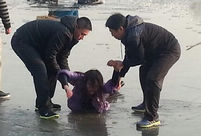 College students saved from an ice hole by brave citizens
College students saved from an ice hole by brave citizens Gallery: Top 10 box office hits in 2013
Gallery: Top 10 box office hits in 2013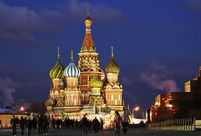 Beautiful churches around the world
Beautiful churches around the world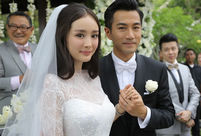 Yang Mi, Hawick Lau hold wedding in Bali
Yang Mi, Hawick Lau hold wedding in Bali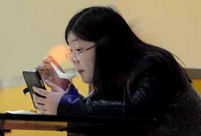 'Phubbing' people seen everywhere
'Phubbing' people seen everywhere World's biggest snack shop in China
World's biggest snack shop in China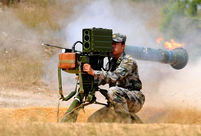 Shocking moments when PLA's weapons open fire
Shocking moments when PLA's weapons open fire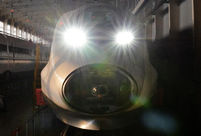 World's fastest train CRH380A assembled in E China
World's fastest train CRH380A assembled in E China Top 10 box office hits in 2013
Top 10 box office hits in 2013 In photos: Ten 'tuhao' devices in 2013
In photos: Ten 'tuhao' devices in 2013 Real estate tycoon measures PM2.5
Real estate tycoon measures PM2.5  'I am on a journey to lose weight'
'I am on a journey to lose weight' 'Cute' artifacts exhibited in Nanjing Museum
'Cute' artifacts exhibited in Nanjing Museum Advanced Chinese weapons that stepped into spotlight in 2013
Advanced Chinese weapons that stepped into spotlight in 2013Day|Week|Month